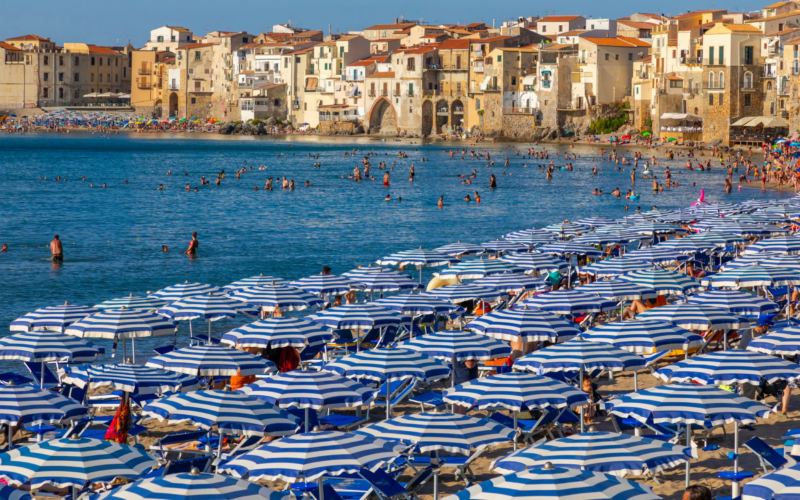In a dramatic display of defiance, Italy’s beach clubs have staged a significant protest against European Union regulations that threaten to overhaul their long-standing business practices. Thousands of beach installations across the country shut down their services on Friday, closing their sun umbrellas as part of a coordinated “strike” against new EU rules set to reshape Italy’s cherished coastal industry.
The new EU directive, which mandates that beach licenses be awarded through a competitive bidding process starting in 2025, has sparked widespread controversy. For decades, beach clubs in Italy have been family-run operations, passed down through generations, and deeply rooted in local traditions. These businesses have not only invested heavily in their properties but also provided a substantial number of jobs. With an estimated 300,000 positions at risk, the impending regulations represent a serious threat to Italy’s beachside economy.
The EU competition rules, established in 2006, require that all concessions be allocated through a competitive process to ensure fairness and transparency. However, successive Italian governments have been reluctant to enforce these rules, largely due to the strong influence of the beach club lobby. The latest push to implement these regulations comes after Italy faced legal action from the Court of Justice of the European Union and the possibility of further EU scrutiny.
Matteo Salvini, leader of the far-right League party, has been vocal in his support for the beach clubs, emphasizing the need for protections and compensation for the affected businesses. Salvini has been pushing the EU Commission to allow for the right of first refusal for current operators and to provide fair compensation for their investments. “If Europe does not grant us these concessions, we will face significant problems,” Salvini warned at a recent event in Marina di Pietrasanta.
Despite the strong opposition from the beach clubs and their supporters, there is a growing chorus of criticism. Environmental groups and some politicians argue that the current system allows beach clubs to dominate the coastline unfairly. According to a report by Legambiente, some towns have beach clubs occupying up to 90 percent of the coastline, paying relatively low rents while generating substantial revenue. This disparity has fueled calls for a more equitable approach to beach access.
Opponents of the beach clubs, including Angelo Bonelli from the Greens and Left Alliance, have seized on the strike as an opportunity to advocate for public access to Italy’s beaches. Bonelli encourages Italians to reclaim their coastal spaces, suggesting that now is the time to challenge the dominance of private beach clubs. “It’s a moment for citizens to peacefully reclaim our beaches and demand public access,” Bonelli declared.
The strike by beach clubs highlights a broader conflict between traditional business practices and EU-imposed reforms designed to foster competition and fairness. As Italy navigates this contentious issue, the outcome will have significant implications for the future of its iconic beachside industry and the balance between preserving cherished traditions and embracing regulatory changes.








